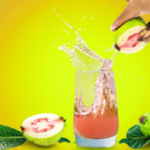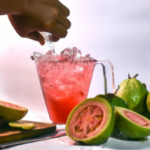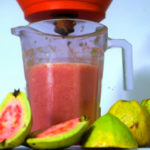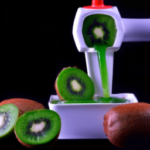Juice Tips and Tricks
How To Juice A Guava

I absolutely love guavas! Their unique sweetness, aroma, and nutritional benefits are truly unmatched. However, have you tried guava juice yet? It provides a delicious and healthy way to enjoy this exotic fruit. In this article, I will walk you through the process of juicing a guava and share some tips to help make juicing easier.
First, you’ll need to gather your ingredients and equipment. You’ll need fresh guavas, a juicer, a knife, a cutting board, and a pitcher to collect the juice. Make sure your guavas are ripe and ready to be juiced. You can tell they are ripe when they are soft to the touch and give off a sweet aroma.
Once you have everything ready, it’s time to start juicing!
Key Takeaways
- Guava juice is a refreshing and healthy way to enjoy this tropical fruit, which is sweet, fragrant, and packed with nutrients.
- To make guava juice, you’ll need fresh guavas, a juicer, a knife, a cutting board, and a pitcher to collect the juice. It’s important to make sure all the fruit is processed when juicing, and you can add additional ingredients like lime juice or salt to enhance the flavor.
- Guava juice is an excellent source of hydration and contains essential vitamins and minerals, including four times more vitamin C than an orange. It’s particularly good for people with digestive issues such as bloating, constipation, and diarrhea, thanks to its high fiber content and digestive enzymes.
- Homemade guava juice is easy to make and a delicious way to enjoy this tropical fruit. You can experiment with different juice flavors and cocktail recipes to find the perfect guava drink, including variations like classic, creamy, spicy, citrusy, and tropical flavors.
Gather Your Ingredients and Equipment
You’ll need a few things before you can start juicing that delicious guava – gather up your ingredients and equipment!
First, you’ll need to have all of the equipment essentials on hand. This includes a juicer or blender, a knife and cutting board, and a measuring cup. You may also want to have a strainer or cheesecloth available to remove any pulp or seeds from the juice.
In addition to the equipment, you’ll need to have the guava fruit itself. Make sure to select ripe guavas that are soft to the touch. You can use any guava juice recipes you like, but for a basic juice, you’ll only need a few guavas.
Now that you have everything ready, it’s time to get started! Wash and cut your guavas into small pieces to prepare them for juicing.
Wash and Cut Your Guavas
Before cutting your ripe guavas, make sure to rinse them under cold water and gently scrub away any dirt or debris. Preparation tips are important when it comes to juicing guavas, and cleaning them is the first step.
Once they’re clean, you can begin cutting them into smaller pieces that’ll fit into your juicer. There are different cutting styles you can use, depending on your preference and the type of juicer you have.
One option is to simply cut your guavas in half and scoop out the flesh with a spoon. This is a great option if you have a manual juicer or if you prefer a thicker, pulpier juice.
Another option is to slice them into smaller pieces, which works well for electric juicers. You can also remove the skin before juicing, although this isn’t necessary.
With your guavas washed and cut, you’re ready to start juicing and enjoying all the health benefits of this delicious fruit.
Start Juicing
I’m now ready to start juicing my guavas. I’ll begin by feeding the sliced guavas into my juicer.
It’s important to make sure all the fruit is processed, so I’ll keep pushing it through until I’m left with just the pulp.
Once all the juice has been collected, I’ll be ready to enjoy a refreshing glass of guava juice.
Feed the Guava Slices into the Juicer
Now it’s time to start juicing those delicious guava slices, so get ready to experience a burst of tropical flavor with every sip! To feed the guava slices into the juicer, follow these simple steps:
-
Take a handful of guava slices and place them into the juicer’s feeding chute. Make sure to push them in gently but firmly, to avoid damaging the juicer’s blades. Once the guava slices are in, turn on the juicer and let it process the fruit into a smooth, refreshing juice. If you’re wondering how to juice a kiwi, follow the same steps: peel the kiwi, slice it, and feed the pieces into the chute, ensuring they are pushed down carefully. Enjoy the combined flavors for a tropical and nutritious drink!
-
Use the juicing techniques that work best for your particular juicer. For example, some juicers may require you to move the guava slices around a bit to ensure they get fully juiced, while others may require you to press down on the feeding chute to help the guava slices get through the juicer.
-
Don’t forget to clean your juicer regularly to ensure optimal juicing performance. Refer to your juicer’s manual for specific maintenance instructions.
After you’ve fed all of your guava slices through the juicer, it’s time to collect the juice.
Collect the Juice
Once all the slices have been juiced, the liquid will flow out of the spout and into your collection container.
It’s important to use a strainer to remove any pulp or seeds that may have made their way into the juice. This will ensure a smooth and enjoyable drinking experience.
From here, you can simply enjoy your freshly squeezed guava juice or get creative by creating guava juice blends. Some popular additions include pineapple, mango, and lime.
In the next section, we’ll discuss how to add additional ingredients (optional) to your guava juice to create a unique and delicious drink.
Add Additional Ingredients (Optional)
To enhance the flavor of your guava juice, you can try adding a splash of lime juice or a sprinkle of salt. These creative combinations can take your guava juice to the next level and add a unique twist to the classic flavor.
Flavor experimentation is a fun and exciting part of the juicing process. Don’t be afraid to try different combinations of ingredients to find the perfect flavor profile that suits your taste buds. With a little bit of experimentation, you can create a refreshing and delicious guava juice that will impress your friends and family.
Now that your juice’s ready, it’s time to serve and enjoy!
Serve and Enjoy
Now that I’ve juiced my guavas and added any additional ingredients, it’s time to serve and enjoy!
First, I like to chill the juice in the refrigerator for at least an hour to make it nice and cold.
Then, I garnish each glass with fresh fruits or herbs, such as a slice of lime or a sprig of mint, for an extra pop of flavor and a beautiful presentation.
Finally, I sit back, relax, and savor the delicious taste of my homemade guava juice.
Chill the Juice
Chilling your guava juice is essential for a refreshing and satisfying sip. Not only does it enhance the taste, but it also offers several benefits that make it a perfect summer drink. When served chilled, guava juice helps regulate body temperature, boosts immunity, and aids in digestion. It is also an excellent source of hydration and contains essential vitamins and minerals that keep you energized throughout the day.
If you don’t have a juicer, making guava juice at home is still easy. Simply blend ripe guava fruits with a little water and strain the mixture through a sieve or cheesecloth. Once the juice is ready, transfer it to a pitcher or glass bottle and refrigerate for at least an hour. To serve, pour the chilled juice into a tall glass and garnish with fresh fruits or herbs for an extra burst of flavor.
Garnish with Fresh Fruits or Herbs
When you want to take your guava drink to the next level, try adding a burst of flavor with fresh fruits or herbs. Garnishing your guava juice not only adds a visual appeal, but also enhances the taste with complementary flavors.
Here are some garnish ideas and flavor combinations you can try:
- For a tropical twist, add a slice of fresh pineapple or mango to your guava juice. These fruits beautifully complement guava and add a sweet and tangy flavor to your drink.
- Alternatively, you can add a sprig of fresh mint or basil for a refreshing and herbaceous note.
- Lemon or lime wedges can also be used to add a zesty kick to your guava juice.
To store leftover juice, transfer it into an airtight container and refrigerate for up to two days. When ready to drink, give it a quick stir as the juice may settle over time.
Now that your guava juice is ready, it’s time to sit back, relax, and enjoy the delicious flavors with a beautiful garnish of your choice.
Store Leftover Juice
When I have leftover guava juice, I make sure to store it properly to keep it fresh and delicious. I always use airtight containers to prevent air from getting in and spoiling the juice.
Then, I refrigerate the juice to extend its shelf life or freeze it for longer storage. By following these simple steps, I can enjoy my guava juice for days to come.
Use Airtight Containers
To keep your guava juice fresh for longer, seal it in an airtight container before storing it in the fridge. Airtight containers are beneficial because they prevent air from getting in and oxidizing the juice, which can cause it to spoil quickly. Additionally, these containers keep the juice’s flavor and nutrients intact, ensuring that you get the full benefits of the guava’s vitamins and minerals.
When choosing the best containers for juicing, look for those made of glass or BPA-free plastic. These materials are non-reactive and won’t alter the taste or quality of the juice. Moreover, they are easy to clean and can be reused multiple times. With an airtight container, you can store your guava juice for up to 3 days in the fridge or up to 6 months in the freezer. Refrigerating or freezing the juice will depend on the amount of time you plan to keep it and your personal preference.
Refrigerate or Freeze
If you want to extend the shelf life of your freshly made guava juice, you should refrigerate or freeze it depending on your preference and how long you plan to keep it. Refrigeration will keep the juice fresh for up to 48 hours, while freezing it can last up to a month. However, freezing may affect the texture and taste of the juice, so it’s recommended to consume it within a week.
There are various ways to use frozen guava, and one of them is to make frozen guava juice. Simply blend the frozen guava with some water and sweetener to taste, and you’ll have a refreshing and healthy drink perfect for hot summer days. Alternatively, you can use frozen guava as a base for smoothies or add it to your favorite cocktail recipes.
Looking for the best guava juice recipes? Keep reading to learn more about the health benefits of guava juice.
Health Benefits of Guava Juice
I love drinking guava juice because it’s not only delicious, but also packed with health benefits.
Guava juice is rich in vitamin C and antioxidants, which are essential for maintaining a healthy immune system and fighting off free radicals in the body.
Additionally, guava juice is great for digestion, as it contains dietary fiber that can help regulate bowel movements and prevent constipation.
Rich in Vitamin C and Antioxidants
You’ll be happy to know that one guava contains four times more vitamin C than an orange, making it an excellent source to boost your immune system and fight off harmful free radicals. Vitamin C is essential for overall health as it helps to stimulate the production of white blood cells that fight off infections and diseases. Consuming foods that are rich in vitamin C, like guava juice, can help prevent illnesses and keep your body functioning properly.
In addition to being a great source of vitamin C, guava juice is also rich in antioxidants. Antioxidants are important because they protect your body from damage caused by free radicals. Free radicals are unstable molecules that can damage your cells and lead to various diseases. By consuming antioxidants, you can help prevent the damage caused by free radicals and maintain good health. So, not only is guava juice delicious, it’s also packed with nutrients that are good for digestion and your immune system.
Good for Digestion and Immune System
Boost your digestive health and strengthen your immune system by incorporating guava into your diet. This tropical fruit is rich in digestive enzymes such as papain and bromelain that help break down food and improve nutrient absorption.
It also contains immune boosters like vitamin C and antioxidants that protect your body against infections and diseases. Guava is particularly good for people with digestive issues such as bloating, constipation, and diarrhea.
Its high fiber content helps regulate bowel movements and prevent constipation, while its anti-inflammatory properties reduce gut inflammation and alleviate symptoms of irritable bowel syndrome. Additionally, the vitamin C in guava stimulates the production of white blood cells, which are responsible for fighting off infections and keeping your immune system strong.
As you can see, guava is a nutritious fruit that offers many benefits for your digestive health and immune system. Now, let’s move on to some tips and tricks for juicing this delicious fruit.
Tips and Tricks
To make your guava juice stand out, sprinkle in a pinch of cinnamon – it’s like adding a cherry on top of your sundae. But that’s not the only way to enhance the flavor of your guava juice.
Here are some tips and tricks to take your guava juice to the next level:
- Add a splash of lime juice for a tangy twist
- Mix in some coconut water for a tropical taste
- Blend in some strawberries for a sweet and fruity blend
- Experiment with different herbs like mint or basil for a unique and refreshing flavor
By using these juicing techniques and guava flavor combinations, you’ll be able to create a delicious and unique guava juice that’s sure to impress. And if you’re feeling adventurous, try adding in some other fruits like pineapple or mango to create even more variations of guava juice. The possibilities are endless!
Variations of Guava Juice
Exploring the many flavors and blends of guava juice can transport your taste buds to a tropical paradise. From sweet and tangy to rich and creamy, guava juice offers a variety of juice flavors that can be used to create unique and delicious cocktail recipes. Here are some variations of guava juice that you can try:
| Juice Flavor | Description | Cocktail Recipe |
|---|---|---|
| Classic | Sweet and tangy with a hint of tropical flavor | Guava Margarita |
| Creamy | Thick and rich with a smooth texture | Guava Colada |
| Spicy | Bold and zesty with a kick of heat | Spicy Guava Martini |
| Citrusy | Light and refreshing with a citrusy twist | Guava Citrus Spritzer |
| Tropical | A blend of various tropical fruits with guava as the star | Tropical Guava Punch |
These juice flavors can be used as a base for a variety of cocktail recipes. For a classic margarita with a tropical twist, try a Guava Margarita by mixing tequila, guava juice, lime juice, and agave nectar. For a creamy and indulgent cocktail, blend guava juice with coconut cream and rum to make a Guava Colada. The options are endless, so experiment with different juice flavors and cocktail recipes to find your perfect guava drink.
Frequently Asked Questions
What are some common mistakes to avoid when juicing guavas?
Oh boy, let me tell you about the common mistakes people make when juicing guavas. First off, using the wrong juicing technique can leave you with a pulpy mess. And for the love of all that is holy, don’t forget to remove the seeds!
Can guava juice be frozen for later use?
Yes, guava juice can be frozen for later use. I recommend pouring the leftover juice into ice cube trays and freezing them. These cubes can then be added to smoothies or thawed for a refreshing drink.
How long does guava juice stay fresh in the fridge?
Funny enough, I just made guava juice yesterday! To keep it fresh in the fridge, I suggest using an airtight container and consuming within 3-4 days. Adding a little lemon juice can also help preserve it.
What are some other recipes that incorporate guava juice?
I love using guava juice in cocktails and smoothies! For a refreshing cocktail, mix guava juice with vodka and lime juice. For a healthy smoothie, blend guava juice with frozen berries and yogurt. Delicious!
Are there any potential side effects of drinking guava juice?
Oh sure, drinking guava juice is all fun and games until you realize there might be some possible risks involved. It’s always good to take precautions and do your research on the health benefits and potential downsides.
Conclusion
Well, that’s it! Now you know how to juice a guava. Remember to gather your ingredients and equipment, wash and cut your guavas, start juicing, and add any additional ingredients if desired. Don’t forget to serve and enjoy your refreshing guava juice, and store any leftovers properly.
Did you know that guava is a superfood? It’s packed with nutrients, vitamins, and minerals that are essential for our health. Guava juice has been shown to improve blood sugar control in people with type 2 diabetes, according to a study published in the Journal of Medicinal Food. So, not only is guava juice tasty, but it can also provide numerous health benefits.
Overall, juicing guavas is a simple and delicious way to incorporate this superfood into your diet. Give it a try and see for yourself!
Susannah expertise lies in researching and compiling evidence-based content on juicing, nutrition, and overall health. She is committed to ensuring that The Juicery World offers accurate, up-to-date, and trustworthy information to empower readers to take control of their health. Susannah’s goal is to inspire individuals to embrace juicing as a way to nourish their bodies and live their best lives.
Juice Tips and Tricks
How to Make Aloe Vera Juice Taste Better

Tired of the strong flavor of aloe vera juice? No problem, we’ve got the answer for you.
In this article, we’ll share some tips and tricks to make your aloe vera juice taste better. We have tried and tested various methods to enhance the flavor without compromising the health benefits.
From choosing the right juice to adding natural sweeteners and infusing with fruits and herbs, we’ve got all the information you need to transform your aloe vera juice into a delightful and refreshing beverage.
Let’s dive in!
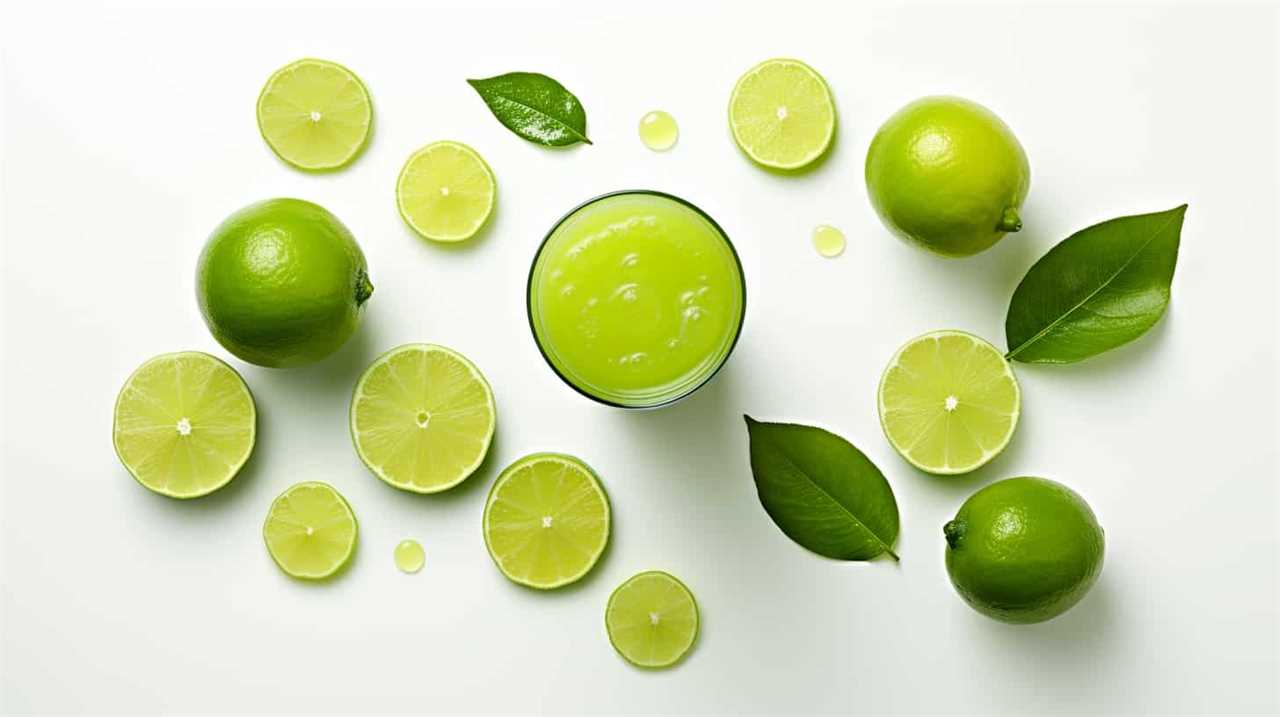
Key Takeaways
- Choose a reputable brand of aloe vera juice that prioritizes quality and uses organic, pure aloe vera.
- Avoid brands that contain added sugars or artificial ingredients.
- Use natural sweeteners like honey, agave syrup, or stevia to enhance the taste of aloe vera juice.
- Experiment with adding fruits, herbs, and other juices to create unique flavor combinations and enhance the health benefits of aloe vera juice.
Choosing the Right Aloe Vera Juice
We can enhance our experience with aloe vera juice by selecting the right brand and type for our preferences. When it comes to finding a reputable brand, it’s important to do some research and read reviews from other consumers. Look for brands that prioritize quality and use organic, pure aloe vera without any added sugars or artificial ingredients. Understanding the health benefits of aloe vera juice is also crucial in making the right choice. Aloe vera is known for its soothing properties, aiding digestion, promoting skin health, and boosting the immune system. By choosing a high-quality brand, we can ensure that we’re getting the maximum benefits from our aloe vera juice.
Now that we know how to choose the right brand, let’s move on to the next step of adding natural sweeteners.
Adding Natural Sweeteners
To enhance the flavor of our aloe vera juice, we can add natural sweeteners such as honey or agave syrup. Using alternative sweeteners not only adds sweetness but also brings unique flavors to the juice. Here are some options to consider:
- Stevia: A natural sweetener derived from the Stevia plant, it’s a zero-calorie alternative to sugar.
- Maple Syrup: This natural sweetener adds a rich and earthy flavor to the aloe vera juice.
- Dates: Pureed dates can be used to sweeten the juice while also providing essential nutrients like fiber.
In addition to using alternative sweeteners, we can enhance the flavor of aloe vera juice by adding spices and extracts. Cinnamon, ginger, or vanilla extract can add warmth and depth to the taste. By experimenting with different combinations of these natural sweeteners, spices, and extracts, we can create a flavor profile that suits our preferences.
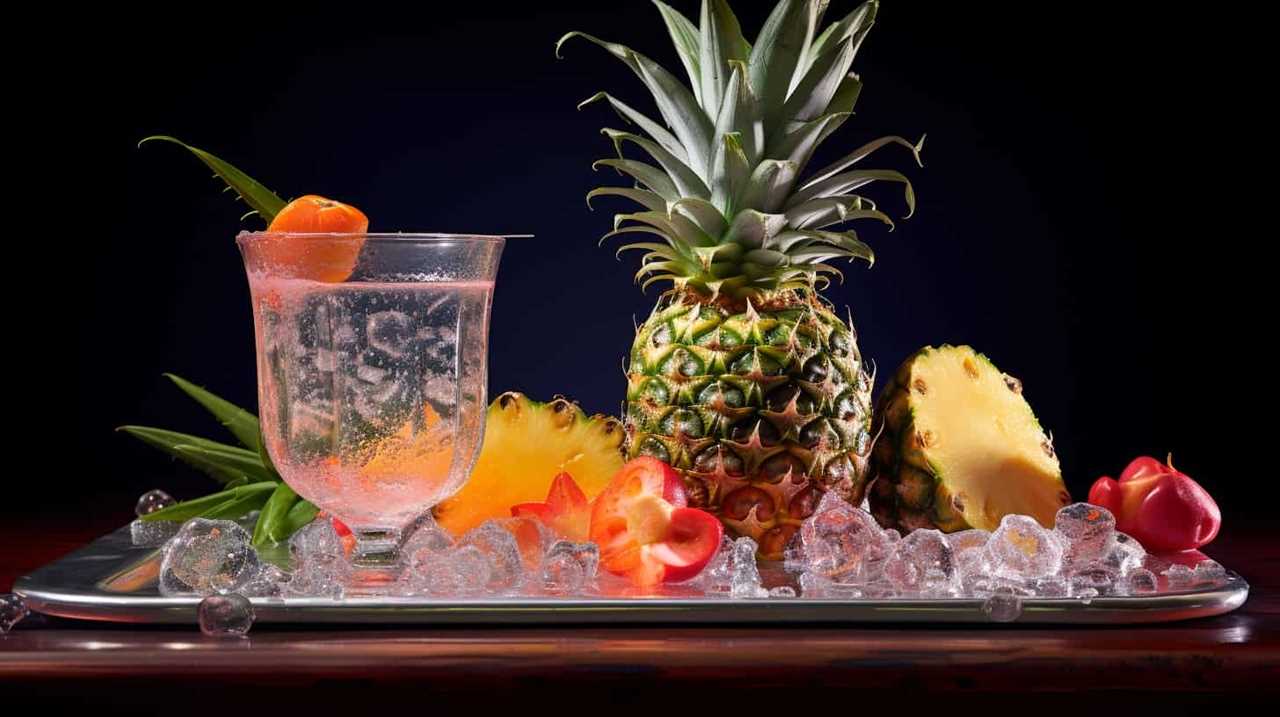
Now, let’s move on to the next section and learn how to infuse aloe vera juice with fruits and herbs to further enhance its taste.
Infusing With Fruits and Herbs
As we explore ways to make our aloe vera juice taste better, one option to consider is infusing it with fruits and herbs. Creating unique aloe vera blends by adding fruits and herbs not only enhances the flavor but also adds a touch of freshness and complexity to the juice. For example, combining aloe vera juice with lemon, mint, or berries can create a refreshing drink that’s both delicious and packed with additional nutrients. It’s similar to the ease of making lemonade with bottled juice—quick, convenient, and customizable to suit your preferences. By experimenting with different fruit and herb combinations, you can elevate your aloe vera juice experience while still reaping its health benefits.
Fruits like strawberries, pineapple, or citrus can add a burst of sweetness, while herbs like mint, basil, or ginger can provide a subtle yet refreshing twist. Exploring the benefits of herbal infusions can also be beneficial for our health. For example, adding a few sprigs of lavender can promote relaxation and reduce stress. Additionally, infusing aloe vera juice with rosemary can aid digestion and boost the immune system.
Blending With Other Juices
Let’s try mixing aloe vera juice with different fruit juices to create delicious and refreshing blends. Blending aloe vera juice with other fruits not only enhances its taste but also adds nutritional benefits to your drink. Here are three fruit juices that you can mix with aloe vera juice:

- Orange juice: Combining aloe vera juice with orange juice not only adds a tangy flavor but also boosts your intake of vitamin C, which is essential for a strong immune system.
- Pineapple juice: Mixing aloe vera juice with pineapple juice creates a tropical blend that isn’t only refreshing but also helps in digestion. Pineapple contains bromelain, an enzyme that aids in breaking down proteins and promoting better digestion.
- Watermelon juice: Blending aloe vera juice with watermelon juice creates a hydrating and refreshing combination. Watermelon is rich in water content and contains electrolytes that can help replenish your body’s fluids.
Experimenting With Flavor Combinations
While we can try various flavor combinations with aloe vera juice, it’s important to find the right balance to enhance its taste. Experimenting with different flavors can’t only make the juice more enjoyable but also enhance its health benefits.
Aloe vera juice is known for its numerous health benefits, such as boosting digestion, promoting hydration, and supporting the immune system. By adding complementary flavors, we can create a refreshing summer drink that not only tastes great but also provides a nutritional boost.
Some popular flavor combinations include mixing aloe vera juice with citrus fruits like lemon or orange, adding a splash of coconut water for a tropical twist, or combining it with cucumber and mint for a refreshing and cooling effect.
Don’t be afraid to get creative and find the flavor combination that suits your taste buds best!
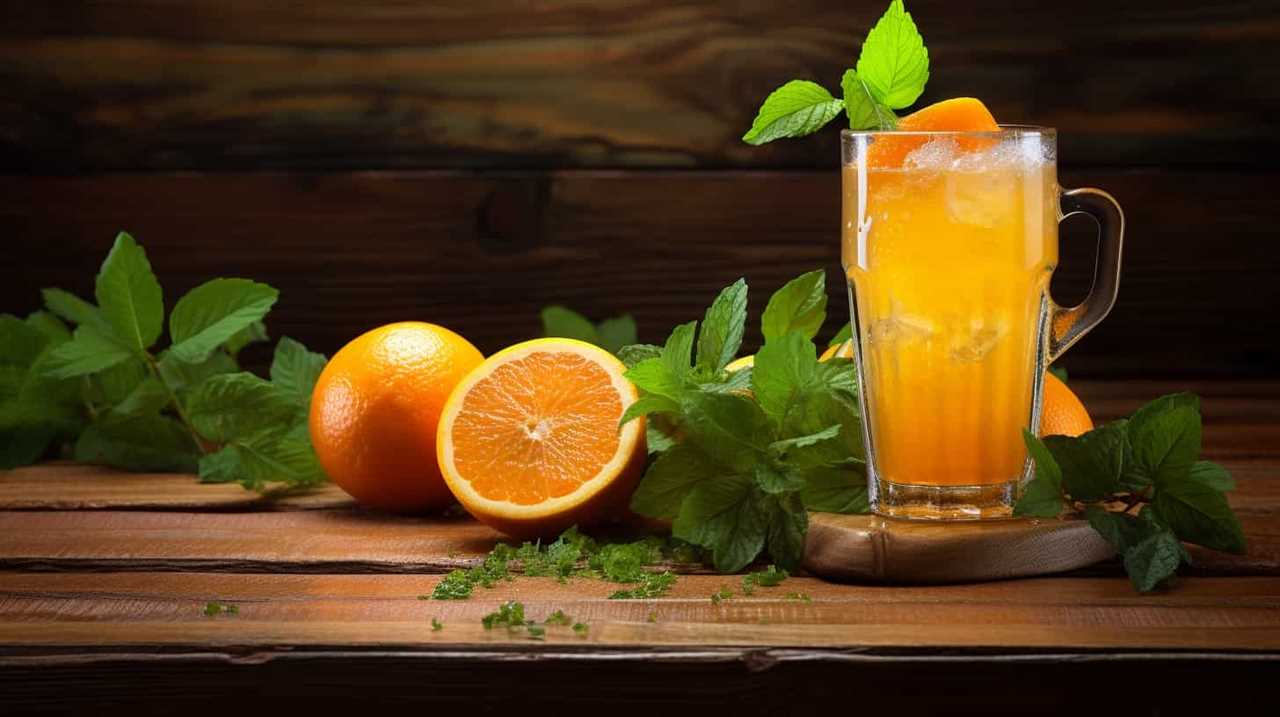
Frequently Asked Questions
Can I Use Store-Bought Aloe Vera Gel Instead of Fresh Aloe Vera for Making Juice?
Yes, you can use store-bought aloe vera gel instead of fresh aloe vera for making juice. However, it’s important to note that fresh aloe vera juice may have more health benefits due to its higher nutrient content.
How Long Can I Store Aloe Vera Juice in the Refrigerator?
Aloe vera juice can be stored in the refrigerator for up to a week. Refrigeration helps maintain the longevity and freshness of the juice, preserving its beneficial properties. It’s important to store the juice in an airtight container to prevent contamination and maintain its quality. Similarly, you might wonder *how long ginger juice lasts*; typically, fresh ginger juice can be refrigerated for about 1–2 weeks as well. Both aloe vera and ginger juices are best consumed within their shelf life to ensure maximum potency and health benefits. Additionally, freezing either juice can extend their shelf life, though some loss of nutrients and potency may occur during the process. When thinking about *how long fresh juice lasts*, it’s crucial to check for signs of spoilage, such as changes in smell, taste, or color, before consuming. To enjoy the best results, it’s always recommended to use fresh ingredients and properly store the juice to ensure you’re getting the most out of its health benefits.
Can Aloe Vera Juice Help With Digestive Issues?
Aloe vera juice can potentially help with digestive issues when taken in appropriate dosages. However, it is important to note that there may be potential side effects. It is always best to consult with a healthcare professional before starting any new supplement regimen.
Can I Use Artificial Sweeteners Instead of Natural Sweeteners in My Aloe Vera Juice?
Using artificial sweeteners in aloe vera juice may affect its taste and potential health benefits. However, natural sweeteners like honey or stevia can enhance the flavor without compromising its nutritional value.

Is It Safe to Drink Aloe Vera Juice Every Day?
Drinking aloe vera juice daily can have numerous benefits, such as improving digestion and boosting the immune system. However, consuming it regularly may also lead to potential side effects like diarrhea or stomach cramps.
Conclusion
In conclusion, making aloe vera juice taste better is easy and enjoyable.
By choosing the right aloe vera juice and adding natural sweeteners, infusing with fruits and herbs, blending with other juices, and experimenting with flavor combinations, you can create a delightful and refreshing drink.
So go ahead and unleash your creativity in the kitchen, and transform your aloe vera juice into a sensational elixir that will transport your taste buds to paradise.
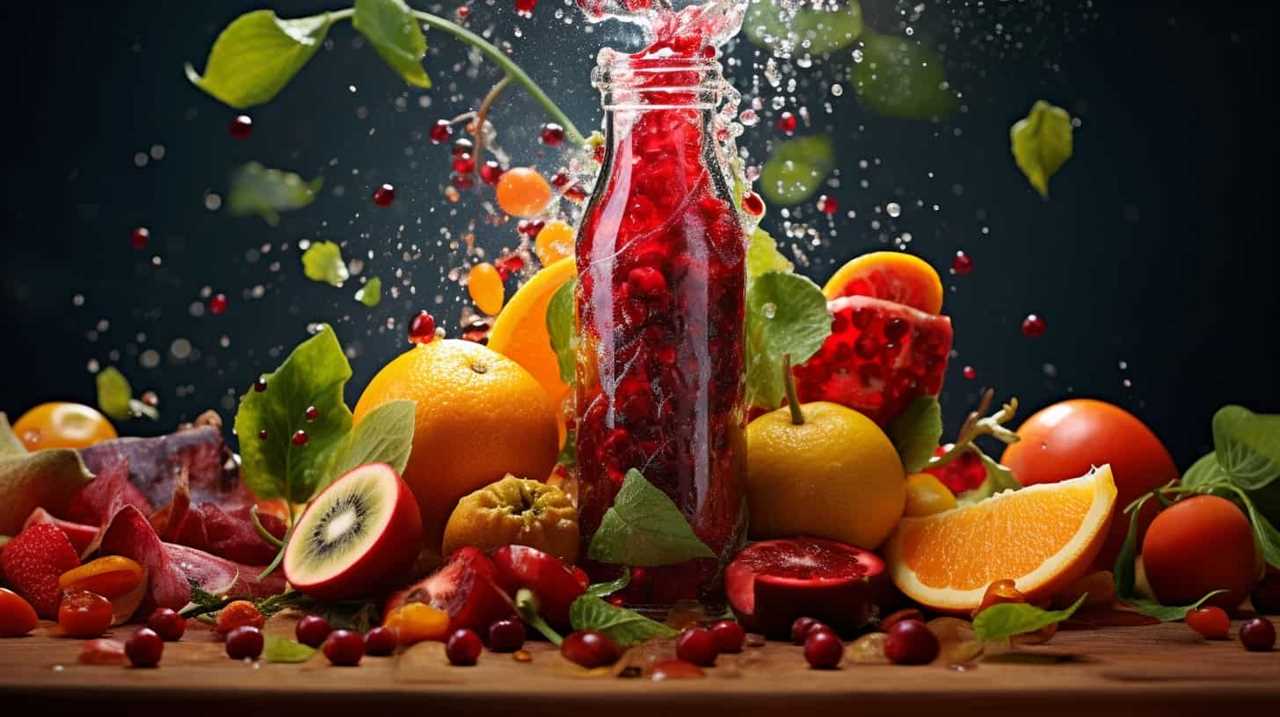
Susannah expertise lies in researching and compiling evidence-based content on juicing, nutrition, and overall health. She is committed to ensuring that The Juicery World offers accurate, up-to-date, and trustworthy information to empower readers to take control of their health. Susannah’s goal is to inspire individuals to embrace juicing as a way to nourish their bodies and live their best lives.
Juice Tips and Tricks
How to Make a Glass of Lemonade With Bottled Lemon Juice

Are you craving a cool glass of lemonade to quench your thirst? Look no further! Try out our perfect recipe using bottled lemon juice that will surely please your taste buds.
In this article, we’ll guide you through the process of creating a tangy and sweet concoction that will leave you feeling refreshed and satisfied.
So grab your ingredients and let’s get started on this delightful journey of serving ourselves and others a glass of pure lemony goodness.
Key Takeaways
- Consider the storage of the bottled lemon juice (dark glass or plastic bottles, protect from light exposure, check expiration date)
- Choose a suitable pitcher and fresh lemons for enhanced flavor
- Store the lemonade concentrate in the refrigerator to maintain freshness
- Adjust the sweetness and tartness to taste with sugar or more lemon juice, and experiment with different sweeteners or additional flavors.
Choosing the Right Bottled Lemon Juice
What are the key factors we should consider when selecting the right bottled lemon juice for our lemonade?

One important factor is how the lemon juice is stored. Look for bottles that are made of dark glass or plastic, as they help protect the juice from light exposure, which can degrade its quality. It’s also important to check the expiration date to ensure freshness.
Another benefit of using bottled lemon juice is convenience. It saves time and effort compared to squeezing fresh lemons. Additionally, bottled lemon juice provides consistent flavor, as the acidity levels are standardized.
When selecting a brand, consider reading reviews and checking for certifications, such as organic or non-GMO.
Gathering the Necessary Ingredients and Tools
How can we gather all the necessary ingredients and tools to make a glass of lemonade with bottled lemon juice? First, we’ll need to collect bottled lemon juice, sugar, and cold water, as well as a pitcher and a spoon for mixing. If you prefer extra flavor, you can also gather ice and optional add-ins like mint or soda water. While preparing the lemonade, it’s easy to understand why some people wonder about other citrus drinks and may ask, “how many oranges per gallon” are needed when making orange juice instead. Once everything is assembled, combine the lemon juice, sugar, and water in the pitcher, stirring until the sugar dissolves. Feel free to adjust the sweetness or tartness to your liking, and don’t forget to add ice or any optional add-ins for an extra refreshing touch. This process might even make you curious about how much juice from oranges is needed when making fresh orange juice compared to using bottled citrus products. Once your lemonade is ready, pour it into a glass and enjoy the refreshing taste. This simple recipe can inspire you to try other homemade juices, such as learning **how to make pear juice** or experimenting with other fruit combinations. Whether you’re using fresh fruits or bottled options, creating your own beverages is a fun and rewarding way to personalize your drinks.
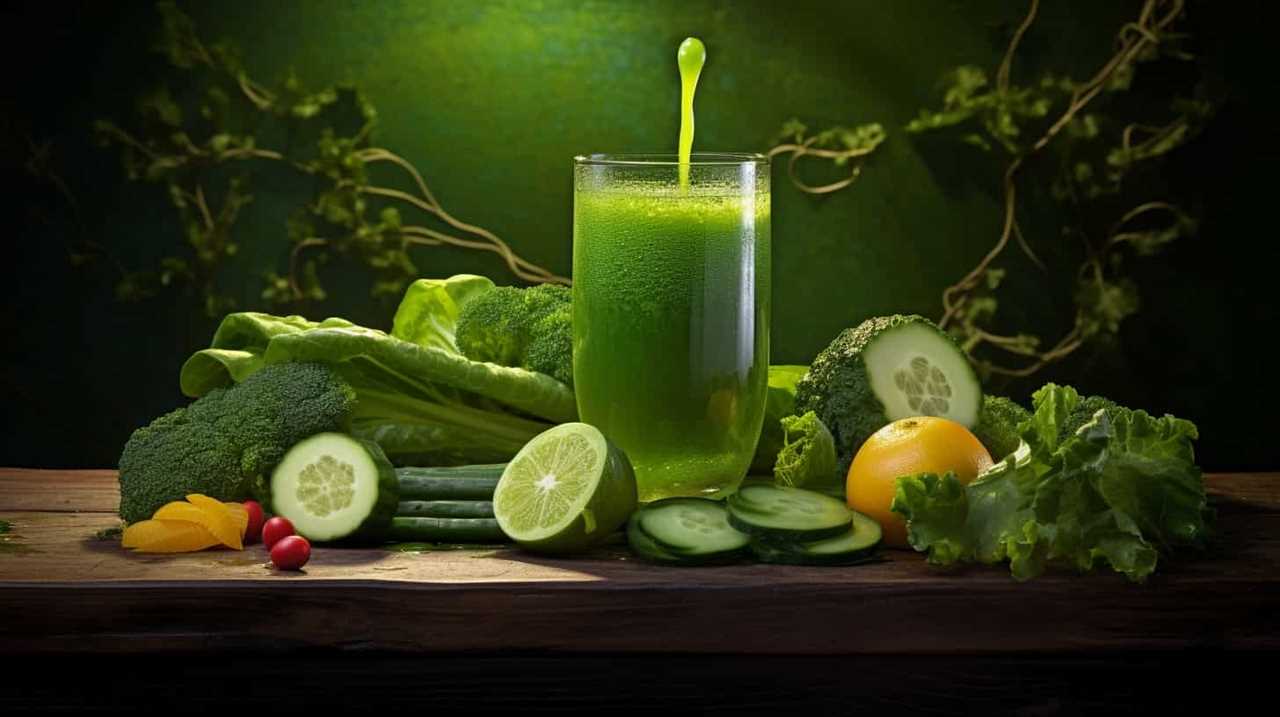
It’s important to start with the right pitcher. Look for a pitcher that’s made of glass or BPA-free plastic, as these materials won’t affect the taste of the lemonade. The pitcher should also have a lid or cover to keep the lemonade fresh and prevent spills.
Now, let’s talk about the lemons. While bottled lemon juice is convenient, using fresh lemons instead can elevate the flavor of your lemonade. Choose lemons that are firm and have a bright yellow color. Give them a gentle squeeze to ensure they’re juicy. To extract the juice, you’ll need a citrus juicer or a reamer. These tools make it easy to get every last drop of juice from the lemons.
Mixing the Lemonade Concentrate
To start mixing the lemonade concentrate, we’ll slowly pour the bottled lemon juice into the pitcher. It’s important to choose the right container for the lemonade concentrate. A pitcher with a lid or a tightly sealed container will help maintain the freshness and prevent any spills or leaks. Once the lemon juice is in the pitcher, we can move on to the next step of adding water and sweetener.
To ensure the lemonade concentrate stays fresh, it’s essential to store it properly. Keep the pitcher in the refrigerator to maintain its cool temperature and prevent any bacteria growth. If you have any leftover concentrate, transfer it to a smaller container with an airtight lid before refrigerating. This will help retain its flavor and prevent any contamination.
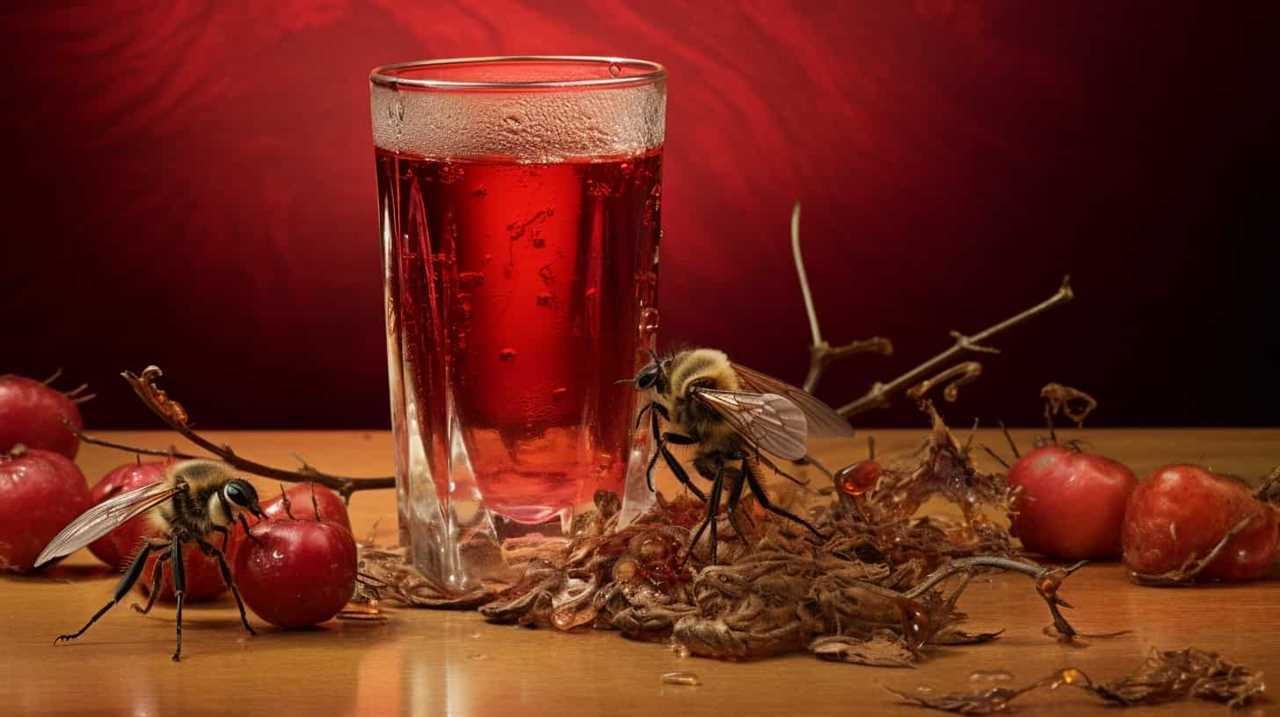
Now that we’ve mixed the lemonade concentrate, it’s time to adjust the sweetness and tartness to taste.
Adjusting the Sweetness and Tartness to Taste
We can adjust the sweetness and tartness of the lemonade to taste by adding more sugar or lemon juice, respectively. If you prefer a sweeter lemonade, simply add more sugar and stir until it dissolves completely. You can experiment with different sweeteners such as honey or agave syrup to find the perfect balance of sweetness.
On the other hand, if you want a tangier lemonade, add more lemon juice gradually, tasting as you go until it reaches your desired level of tartness.
Additionally, you can get creative with your lemonade by adding flavors like fresh mint leaves or a hint of lavender. These additions can elevate the flavor profile and create a more refreshing and unique experience.
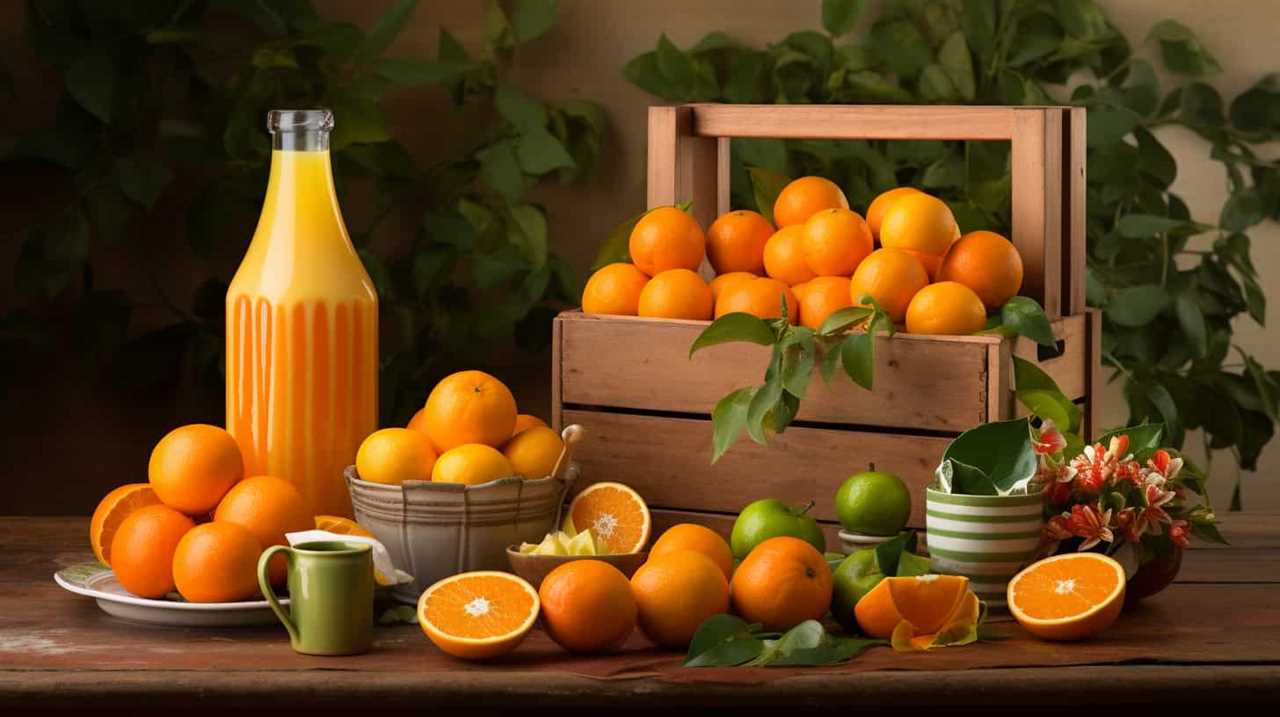
Now that we’ve adjusted the sweetness and tartness of our lemonade, let’s move on to serving and enjoying your refreshing glass of lemonade.
Serving and Enjoying Your Refreshing Glass of Lemonade
Now let’s sit back, relax, and savor our refreshing glass of lemonade.
When it comes to serving and enjoying this delightful drink, there are a few techniques and garnishing options to consider.
Firstly, serving your lemonade chilled is essential for maximum enjoyment. Ensure that you have chilled glasses or add ice cubes to the glasses before pouring the lemonade.

To add a touch of elegance, you can garnish your lemonade with a slice of lemon on the rim of the glass. For an extra burst of flavor, you could also add a sprig of fresh mint or a few berries.
Remember to gently stir the lemonade before serving to evenly distribute the flavors.
Now, take a sip, feel the refreshing tang of lemon, and let the sweet and tart flavors dance on your taste buds.
Cheers!
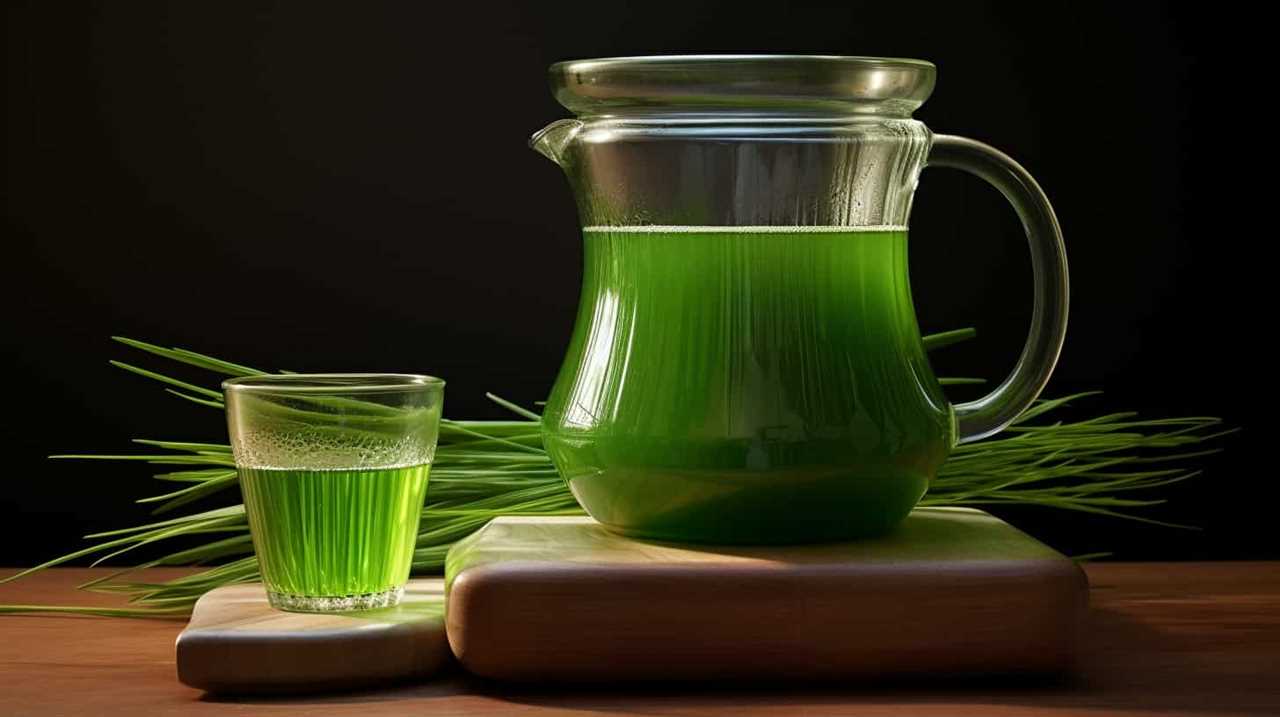
Frequently Asked Questions
Can I Use Fresh Lemons Instead of Bottled Lemon Juice?
Fresh lemons offer numerous benefits over bottled lemon juice. The taste of fresh lemons is unparalleled, providing a vibrant and tangy flavor. Incorporating fresh lemons into your lemonade will elevate its taste and give it a refreshing and authentic twist.
Can I Substitute Sugar With a Different Sweetener?
Substituting sweeteners in lemonade can enhance the flavor and offer health benefits. We’re knowledgeable about alternative sweeteners and can provide precise, detailed instructions on using them in place of sugar.
How Long Does the Lemonade Concentrate Need to Chill in the Refrigerator?
The chilling time for the lemonade concentrate in the refrigerator is typically around 1-2 hours. Using bottled lemon juice offers the benefit of convenience and consistent flavor for a refreshing glass of lemonade.
Can I Add Other Fruits or Flavors to the Lemonade?
Sure, we can definitely add different fruits or flavors to our lemonade. It’s a great way to experiment with unique flavors and create refreshing, personalized drinks. The possibilities are endless!

How Long Does the Lemonade Stay Fresh in the Refrigerator?
Lemonade made with bottled lemon juice can stay fresh in the refrigerator for about 5-7 days. To maximize shelf life, store it in an airtight container and keep it chilled.
Conclusion
And so, with a few simple steps and the right ingredients, a glass of refreshing lemonade is born.
Like a symphony of flavors dancing on your taste buds, this tangy elixir quenches thirst and brings joy on a hot summer day.
Just a sip transports you to a world of citrusy delight, where the sweetness and tartness blend harmoniously.

So go ahead, indulge in the art of lemonade-making and savor every drop of this sun-kissed nectar.
Cheers to the perfect glass of lemonade!
Susannah expertise lies in researching and compiling evidence-based content on juicing, nutrition, and overall health. She is committed to ensuring that The Juicery World offers accurate, up-to-date, and trustworthy information to empower readers to take control of their health. Susannah’s goal is to inspire individuals to embrace juicing as a way to nourish their bodies and live their best lives.
Juice Tips and Tricks
How to Know if Orange Juice Is Bad

We’ve all been in that situation before – reaching for a glass of orange juice and hesitating, unsure if it’s still okay to drink. Fear not! This article will give you the knowledge you need to determine for sure if your orange juice is still fresh or if it’s gone bad.
With a blend of scientific precision and practical tips, we’ll explore color changes, strange smells, off taste, texture changes, and mold or growth that may indicate spoilage.
Let’s dive in and serve ourselves a refreshing glass of certainty!
Key Takeaways
- Color changes in orange juice can indicate a loss of freshness and shelf life extension, but it doesn’t necessarily mean the juice is bad.
- Unusual or off-putting odors in orange juice, such as sour or fermented scents, can be a sign of poor quality.
- An off taste in orange juice, such as sour, bitter, or fermented flavors, suggests that the juice is spoiled.
- Texture changes in orange juice, such as pulp separation or a thicker consistency, can occur as the juice ages, so it’s important to consume it before the expiration date.
Color Changes in Orange Juice
We should be aware that color changes can indicate whether orange juice is bad.

When it comes to orange juice, color is a crucial factor to consider. As oranges are exposed to air, an oxidation process occurs, which leads to changes in color. Fresh orange juice has a vibrant orange hue, indicating its freshness and high nutritional value.
However, as time passes, the juice may undergo a color change, turning dull or brownish. This change in color is a result of the oxidation process, which affects the flavor and quality of the juice. It’s important to note that while a change in color doesn’t necessarily mean the juice is bad, it does indicate that the juice is losing its freshness and shelf life extension.
Therefore, it’s advisable to consume orange juice when it’s at its freshest, as indicated by its vibrant orange color.
Strange Smells in Orange Juice
When it comes to evaluating orange juice, we should be cautious of any strange smells or odors. A fresh, pleasant smell is indicative of good quality orange juice. However, if you notice any unusual or off-putting odors, it may be a sign that the juice has gone bad. These smells can range from a sour or fermented scent to a rancid or moldy aroma.

It’s important to note that while some natural variations in scent can occur due to the specific variety of oranges used, any strong or unpleasant smells should raise concerns. If you have citrus fruit allergies, it’s especially important to pay attention to the smell of orange juice, as it could indicate the presence of spoilage or contamination.
Ensuring the quality of orange juice is essential as it’s a popular beverage known for its health benefits, including being rich in vitamin C and antioxidants.
Off Taste of Orange Juice
Our taste buds can detect even the slightest hint of an off taste in orange juice, which can indicate that it has gone bad. The taste of orange juice should be fresh, tangy, and slightly sweet. If it tastes sour, bitter, or fermented, it’s likely spoiled.
One common cause of an off taste in orange juice is the use of overripe oranges. When oranges become overripe, their flavor profile changes, resulting in a less pleasant taste. Another factor to consider is the expiration date. Orange juice that has passed its expiration date is more likely to develop an off taste. It’s important to check the expiration date before consuming orange juice to ensure its freshness and quality. Additionally, improper storage conditions, such as leaving the juice at room temperature for extended periods, can lead to the development of unpleasant flavors. Storing orange juice in the refrigerator helps maintain its freshness for longer. For those exploring different juice options, aloe vera juice flavor tips suggest pairing tart juices with milder flavors to balance the overall taste.
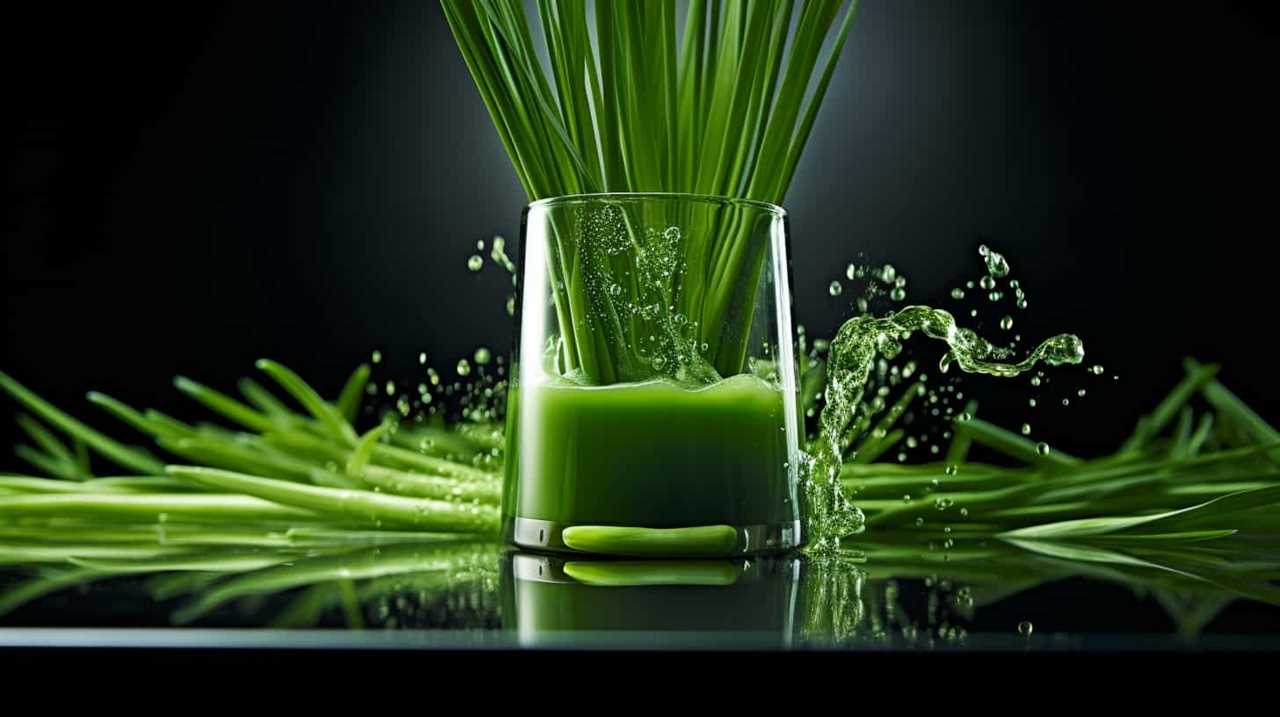
Now, let’s move on to discuss the texture changes in orange juice.
Texture Changes in Orange Juice
As we explore the texture changes in orange juice, it’s important to note that certain factors can cause it to become thicker or develop sediment. One common texture change in orange juice is pulp separation, where the pulp separates from the liquid and settles at the bottom. This can occur naturally over time, as the pulp particles become denser and sink.
Another factor that can affect the texture of orange juice is the expiration date. As orange juice ages, it may start to develop a thicker consistency and even form sediment. This is a result of the natural breakdown of the juice’s components. Therefore, it’s crucial to check the expiration date on orange juice and consume it before it reaches its expiration date to avoid any undesirable texture changes.
Mold or Growth in Orange Juice
We need to be aware of the possibility of mold or other growth occurring in orange juice. Mold can develop in orange juice if it isn’t stored properly or if it has passed its expiration date.
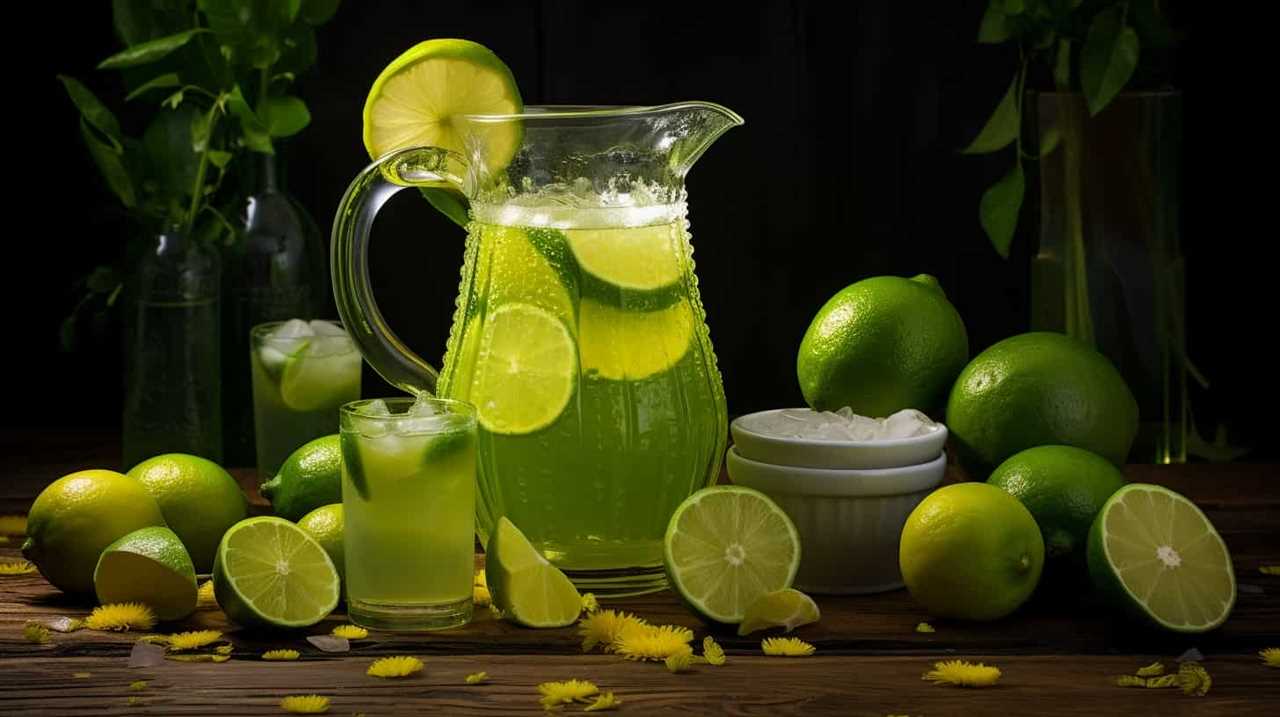
To prevent mold growth, it’s important to follow these steps:
- Store orange juice in the refrigerator at a temperature below 40°F (4°C).
- Check the expiration date on the bottle before consuming. Discard any orange juice that has expired.
- Keep the container tightly sealed to prevent air and moisture from entering, as these can promote mold growth.
Regularly inspecting orange juice for any signs of mold or unusual growth is essential. If you notice any discoloration, a strange odor, or visible mold, it’s best to discard the juice to avoid any potential health risks.
Frequently Asked Questions
Can Orange Juice Go Bad if It’s Stored in the Freezer for Too Long?
Frozen orange juice can potentially lose its nutrients and change its taste if stored in the freezer for too long. It is important to check for signs of spoilage before consuming it.
How Long Can Orange Juice Stay Fresh in the Refrigerator Once It’s Opened?
Once opened, orange juice can stay fresh in the refrigerator for about 7-10 days. To maintain its freshness, store it properly by keeping it tightly sealed and at a consistently cold temperature. If the orange juice develops an off odor, flavor, or appearance, it’s best to discard it to avoid any potential health risks. Factors like exposure to air and varying temperatures can influence how long orange juice lasts, so it’s crucial to handle it with care. Always check the expiration date as a general guide, but remember that proper storage can extend its freshness slightly. Additionally, avoid leaving the orange juice out at room temperature for extended periods, as this can significantly shorten how long orange juice lasts. Freezing the juice can be another option to extend its shelf life, but be aware that this may alter its texture and taste once thawed. By following these precautions, you can ensure your orange juice stays fresh and safe to consume.
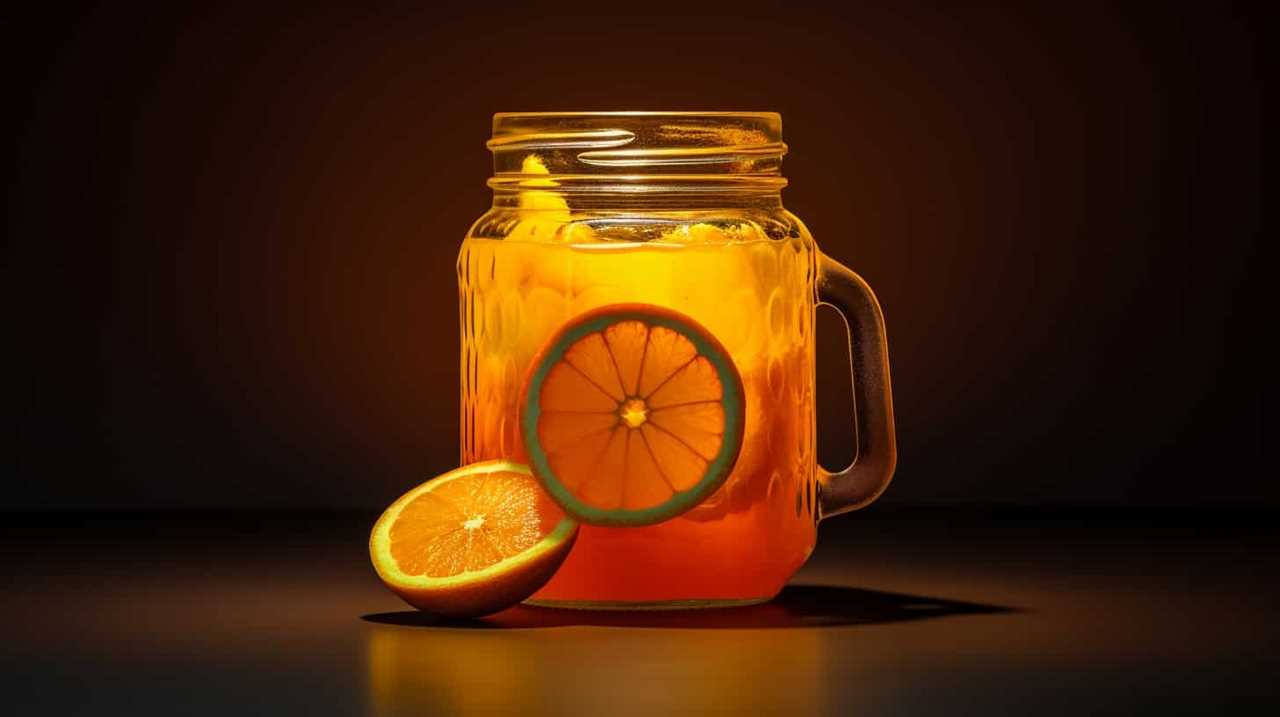
Is It Safe to Consume Orange Juice That Has Been Left Out at Room Temperature Overnight?
Left out orange juice may not be safe to drink as it can harbor harmful bacteria. Signs of spoiled orange juice include a sour smell, mold growth, and a change in color or taste.
Can Orange Juice Develop Harmful Bacteria if It’s Past Its Expiration Date but Still Looks and Smells Fine?
Orange juice can cause food poisoning if it develops harmful bacteria, even if it looks and smells fine. Signs of spoiled orange juice include a sour smell, mold growth, and a change in color or taste.
Does the Nutritional Value of Orange Juice Decrease as It Starts to Go Bad?
As orange juice goes bad, its nutritional value decreases. The longer it sits on the shelf, the more nutrients it loses. Signs of spoilage include a sour smell, off taste, and mold growth.
Conclusion
In conclusion, determining if orange juice is bad requires careful observation of color changes, strange smells, off taste, and texture changes. Just like a detective investigating a case, we must rely on our senses to detect any signs of spoilage.
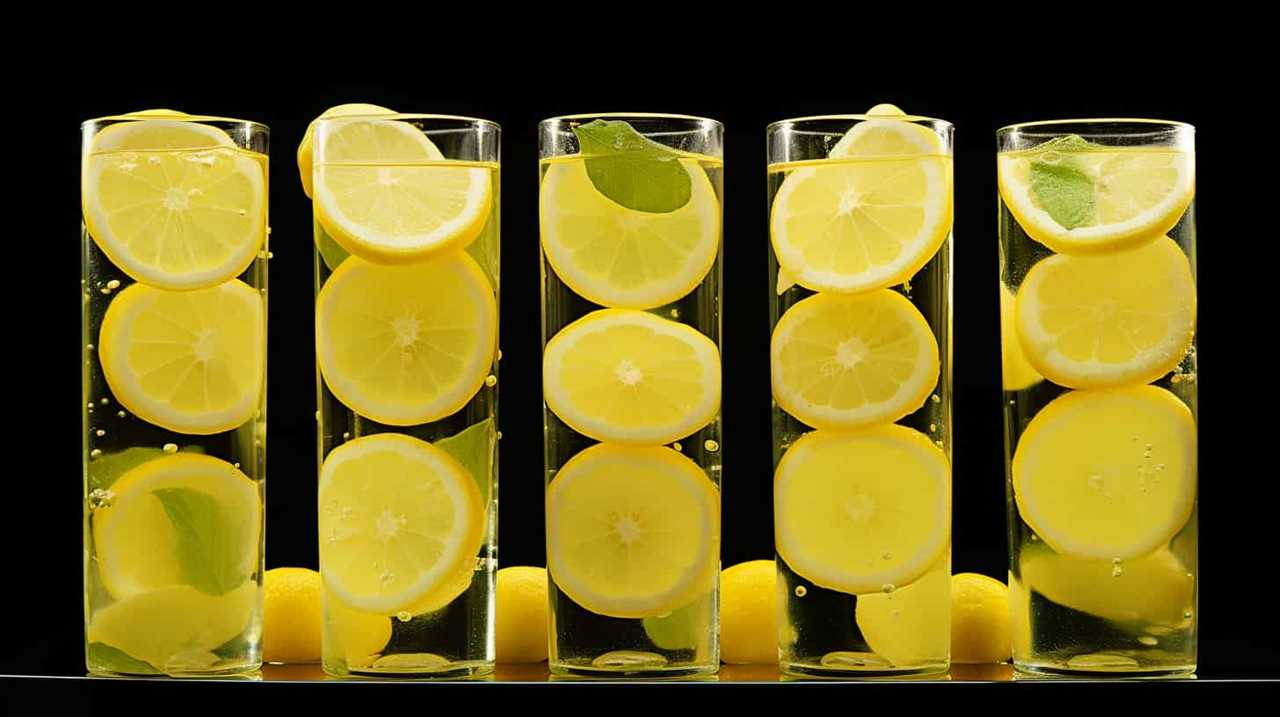
If we detect mold or growth in the orange juice, it’s a clear indication that it’s no longer safe to consume. By remaining vigilant and attuned to these indicators, we can ensure that our orange juice is always fresh and enjoyable.
Susannah expertise lies in researching and compiling evidence-based content on juicing, nutrition, and overall health. She is committed to ensuring that The Juicery World offers accurate, up-to-date, and trustworthy information to empower readers to take control of their health. Susannah’s goal is to inspire individuals to embrace juicing as a way to nourish their bodies and live their best lives.
-

 Vetted2 months ago
Vetted2 months ago15 Best Juices for Diabetics: Refreshing Options That Won’t Spike Your Blood Sugar
-

 Vetted2 months ago
Vetted2 months ago15 Best Decaf Coffee Options for Flavor Lovers Who Need a Caffeine Break
-

 Vetted2 months ago
Vetted2 months ago15 Best Espresso Ground Coffees to Elevate Your Morning Brew
-

 Vetted2 months ago
Vetted2 months ago15 Best K-Cup Coffee Pods for a Perfect Brew Every Time
-

 Vetted2 months ago
Vetted2 months ago15 Best Beans for Espresso: A Guide to Perfecting Your Brew
-

 Vetted2 months ago
Vetted2 months ago15 Best Inexpensive Espresso Machines That Brew Quality Coffee on a Budget
-

 Vetted2 months ago
Vetted2 months ago15 Best Kona Coffees to Savor the Rich Flavors of Hawaii
-

 Vetted2 months ago
Vetted2 months ago15 Best Cold Brew Coffees to Keep You Refreshed All Summer Long



